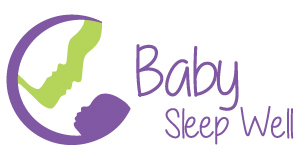Hello again, this weeks breast feeding information is all about the breast and nipple.
There are a few things that are normal such as sore and tender nipples and some engorgement in the early days of breast feeding or when weaning. These should settle pretty quickly.
Things that might hinder your progress while breast feeding such as mastitis, and cracked or bleeding nipples are indications that something needs attention promptly. Assistance can rectify these conditions quickly in most cases.
Breast engorgement refers to overfull, tender hard breasts. It is common in the early days of breast feeding, during weaning, and pretty much anytime the supply of milk is more than baby’s demand. Breasts can be relieved by releasing pressure by one or a combination of feeding, expressing, cold compresses. Paracetamol / Nurofen can relieve the discomfort if required.
Engorgement can make it difficult for baby to attach and therefore cause nipple damage. Expressing to soften the nipple prior to feeding or if you notice baby is having difficulty attaching is effective to rectify this and prevent nipple damage.
Engorgement can lead to mastitis. Ouch!
This is painful and more importantly, quite debilitating.
It is very common for women to feel “fluey” just prior to “being hit by a truck”. Antibiotics resolve this quickly but if you are feeling “fluey”, assume it may be mastitis and get to the Dr quickly. I can assure you that you will know within a few hours if you need to take the antibiotics. The good news is that if you do, you will feel improvement within 24 hours.
It is important to continue breast feeding to help relieve engorgement and Mastitis.
Breast abscess is less common but can occur after mastitis.
Pain, redness and firmness in a specific area of the breast accompanied by fever and chills can be indicative. They require medical attention and are drained by incision or needle aspiration.
Tender nipples are not uncommon when starting breast feeding and as long as baby is attaching correctly, this should settle within a few days (refer to post on 4/4 regarding positioning).
Cracked and bleeding nipples are largely a result of incorrect
attachment and need to be addressed as soon as possible. Correcting attachment will reverse the damage and allow the nipples to heal very quickly. Cracked nipples can be a portal for infections which may lead to breast abscess so need to be avoided or rectified quickly.
These are some of the less exciting aspects of breastfeeding which some women never experience. If however, you are having difficulties you are not alone or a “failure”. Seeking professional help early will rectify most issues and help you enjoy your breast feeding journey.
Until next week.
Kathy
If you have any questions or there are any topics you would like to see in future posts please don’t hesitate to get in touch.
